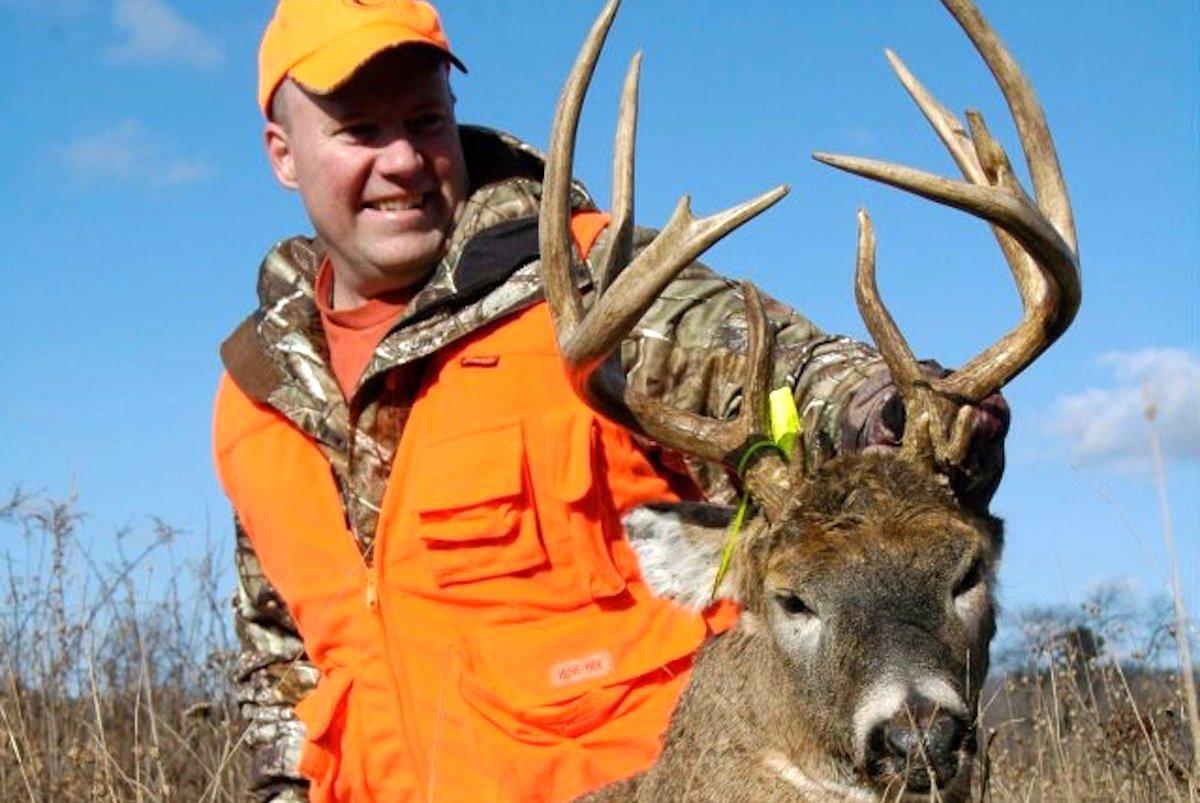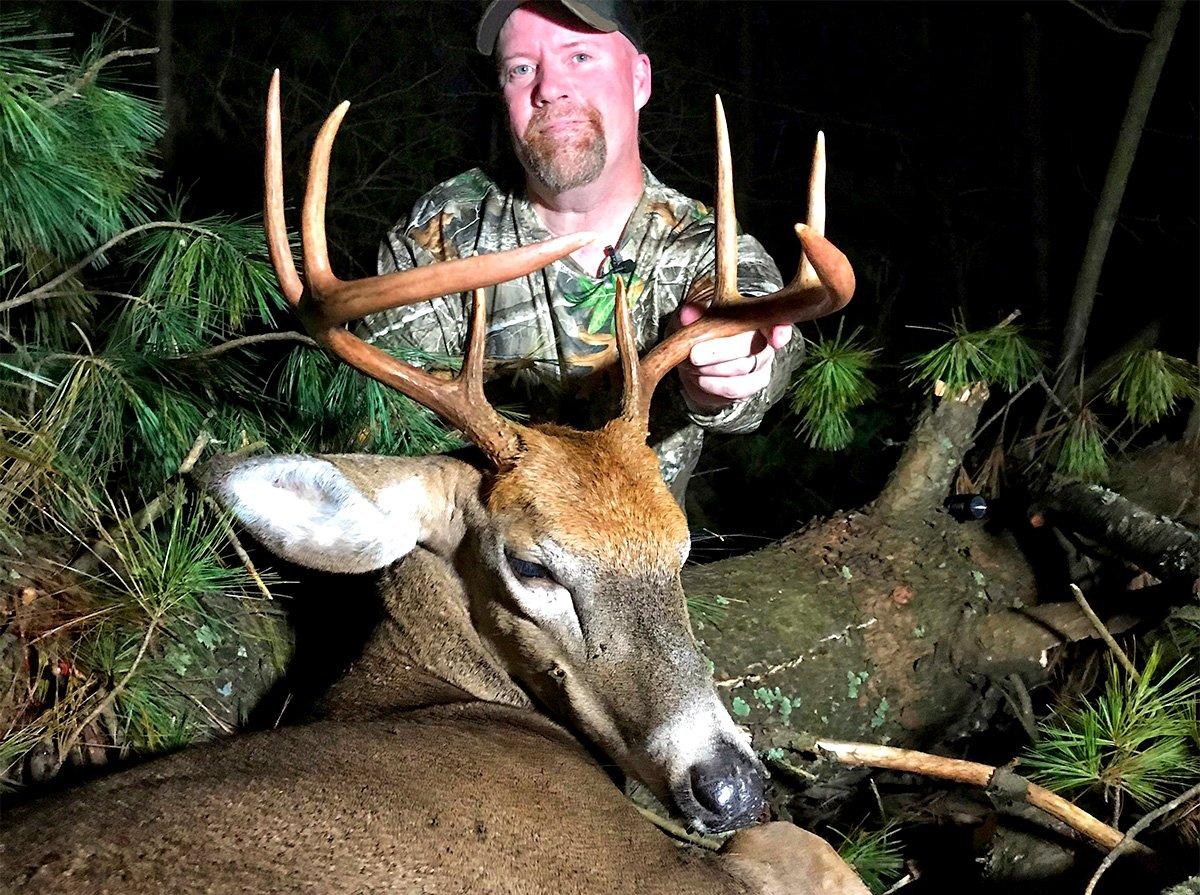The Badger State's Natural Resources Board proposed changes for next fall to increase excitement. Here's what surveyed hunters had to say
Few things fire up deer hunters more than changes to their season, and in the past two decades, Wisconsin has seen plenty of fired-up hunters. Many newly proposed hunting policies, some of which were enacted, have been met with public dissension. The latest debates stem from the Wisconsin DNR Spring Hearing, a series of 55 wildlife policy questions that were posed to the public by the state's Natural Resources Board. Several questions proved controversial, and were met with significant opposition. Here's a look at some of those topics.
Extending the Gun Season
One proposal suggested extending the current nine-day firearm season by tacking on an additional 10 days. The NRB says this isn't to increase the deer harvest, but to increase participation. Nonetheless, the public heavily opposed this, with 71% voting against extending the season.
According to the DNR, rifle license sales have dropped more than 15% in the past 25 years. Its hope is to bring those hunters back, or replace them with new ones. Despite that decline, the majority of respondents don't want extended rifle seasons.
I think their overall interest is to increase hunting participation, promoting deer hunting, and doing whatever they can to show support for deer hunting here in Wisconsin, says the DNR's big game section chief, Bob Nack, who is a biologist for the department (though not part of the NRB). I think the intent is to provide a season structure that is going to increase participation, but I don't see it as having a significant impact on the herd.
The survey doesn't reveal why participants voted how they did. Perhaps they don't think deer herds can handle the additional pressure, or that longer seasons could take a toll on buck age structure. Or maybe they simply don't want to break from tradition.
Another potential extension included a 16-day gun season (instead of 9), which would begin on the Saturday nearest November 15. The majority (66.5%) of respondents opposed this, too.
This proposal has been around for more than 30 years, says Dan Schmidt, a Wisconsin resident and co-owner and editor-in-chief of Deer & Deer Hunting. It was met with incredible resistance back then. What I believe happened then, and now, is that most hunters - and I say this with all due respect - simply do not care about macro-level deer management. Adding 10 days to the gun season will not increase the overall harvest by much. I'd argue it'd add fewer than 10,000 deer to the overall harvest. But, at the end of the day, it is clear to me that hunters don't want the extended gun season.
Archery and Crossbow Season Changes
Two other questions asked about changes to archery seasons, which the majority of respondents did not support. Hunters did not, for instance, like the idea of closing crossbow season in November and reopening it alongside rifle season (54% were not in favor).
Another proposition included establishing a no-hunting period before the first day of the firearm deer season, with the exception of waterfowl hunting. This would eliminate part of archery season, which was actually a policy that existed until 2002. The NRB says some hunters thought this break helped boost excitement for the rifle opener. Still, 11,237 people voted for a two-day rest, 12,871 voted for a five-day rest, and 31,055 voted no rest. Most people don't like the idea of resurrecting this policy.
Reinstating Earn-A-Buck
Few things have been more controversial than Wisconsin's past Earn-A-Buck program, which was repealed in 2011. Interestingly, it was brought up again in the recent hearing - twice. The first proposal read, Return authority to the DNR to utilize Earn-A-Buck as a herd-management tool in overpopulated counties (requires legislation). A majority of 57% opposed reinstating Earn-A-Buck.
The second proposal read, Allow CDACs the ability to make recommendations regarding using Earn-A-Buck in their respective counties (requires legislation)? The response was similar, but with a slimmer margin of 52% of respondents opposing. (Thirty-five percent were in favor, and 13% had no opinion.)
It's abundantly clear the majority of the hunting public doesn't want this program reinstated. This is a challenging policy for hunters with few days to spend afield, and many don't like having to pass on a buck if they haven't already been presented with an opportunity to tag a doe.
Baiting and Water Sources
While baiting is already banned throughout much of the state, one proposal asked if hunters supported the prohibition of baiting and feeding deer statewide. While 44% supported statewide bait bans, 46.8% did not, and 9.2% had no opinion. Most survey respondents (52%) also did not support restricting the placement of artificial water sources for attracting deer and elk in CWD-affected counties.
If banning was out of disease concern, I would say the state really needs to look harder at all the potential transmission practices, Schmidt says. I would argue that baiting would not be the No. 1 item on the list. Schmidt believes restricting baiting and artificial water sources could also hurt the push to increase hunter numbers.
My views on baiting as a tool for deer-herd management have changed over the years, he says. Michigan implemented an all-out ban last year, and they sold 20,000 fewer licenses. Is that purely related to the baiting ban? Who knows? But I will say this: it didn't help retain hunters.
Wisconsin deer hunters have in the past seen plenty of changes to their season. The Spring 2020 Hearing made it clear that they don't want any more of them for next fall, be they longer gun seasons, shorter archery seasons, or the return of Earn-A-Buck. Wisconsin deer hunters still oppose policies that have created controversy for decades. While that's a signal of their loyalties to traditions, it's also a sign that modern deer hunting culture is more focused on management at the micro level than macro level, which is where the DNR must operate.








